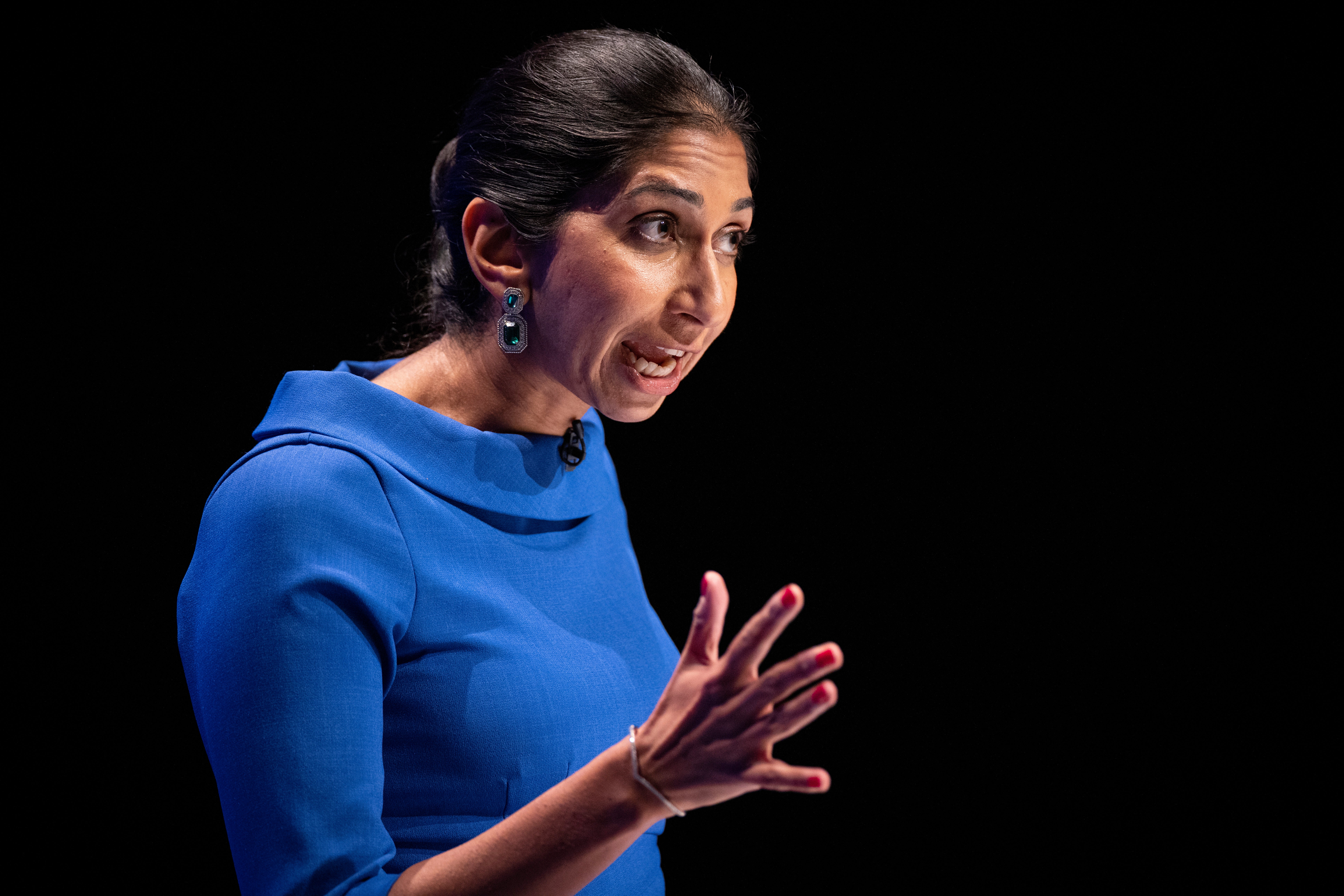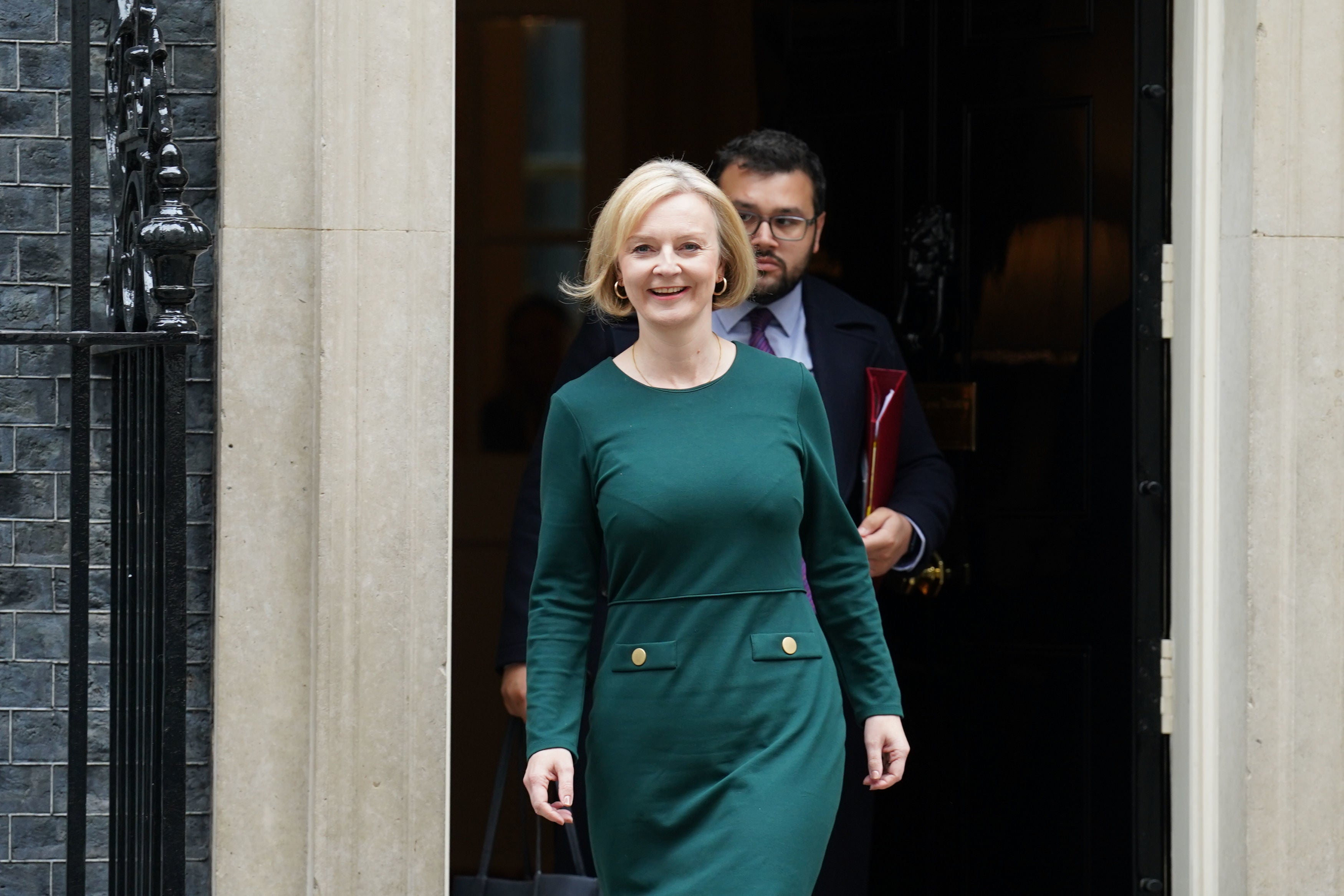Police commissioners ‘given no detail’ of how 20% crime cut demanded by Truss and Braverman will work
Government has given no details of policy first announced during Liz Truss’ leadership campaign

Police and crime commissioners say they have been given no information on how the 20 per cent cut to murder and other crime types demanded by the prime minister and home secretary will work.
Liz Truss proposed the targets in July during her successful Conservative Party leadership campaign, when police sources lambasted the plans as “incoherent”.
The new home secretary, Suella Braverman, confirmed the government was pursuing the policy with a letter to all police forces in England and Wales last month.
In her speech to the Conservative conference last week, she said: “The prime minister and I want to see homicide, serious violence, and neighbourhood crime fall by 20 per cent.”
No further information has been given about how the fall will be judged, whether it will be per force or nationally and how it will be implemented.
At a press conference on Thursday, members of the Association of Police and Crime Commissioners (APCC) said they had not been formally consulted on the plans.
Matthew Barber, the Conservative PCC for Thames Valley, said: “I haven’t seen any detail on that … there needs to be a discussion about what crime we are talking about, the baseline is crually important, and the timescale.”
Mr Barber, who is the APCC’s joint lead for performance, said that under the previous policing minister Kit Malthouse a “crime performance board” looked at homicide reduction but did not set a numerical target.
“I would envisage that body will be revised as a talking point for sensible negotiation around what those targets would be,” he added.

Kim McGuiness, the Labour PCC for Northumbria, called for focus and investment on preventing crime amid fears that some types will increase during the cost of living crisis.
She said: “So far we’ve had no detail [on the 20 per cent cut]. We need to be very very wary of targets without any proper rationale and thought about the way we prevent crime in order to drive down the numbers.”
Several senior police figures have voiced concerns about the plans, after previous policing targets were scrapped.
A 2015 report found that previous crime targets created “perverse incentives to mis-record crime” and caused police to respond to some offences selectively “to the detriment of other calls”.
It was commissioned by the then home secretary Theresa May, who said at the time: “Targets don’t fight crime, they hinder the fight against crime.”

The proportion of crimes solved has been dropping in recent years, with prosecution rates currently at a record low of just 5.6 per cent of all offences while police-recorded crime is at a record high.
Official reports have warned of a national shortage of detectives, and said Boris Johnson’s push to recruit 20,000 extra constables in three years is “creating an inexperienced workforce”.
Writing for The Independent last month the chair of the Police Federation, which represents more than 120,000 rank-and-file officers in England and Wales, said it was “disappointing and dangerous, to see policies which have failed so disastrously in the past be promoted and presented as brand-new ideas”.
Steve Hartshorn warned: “Crime cannot be controlled by a government issued, headline-friendly diktat asking police forces to cut serious crimes such as homicide by 20 per cent or else face action.
”Law and order must be free from the ebb and flow of politics and although policing may have to adhere to targets, the public doesn’t – and if we focus on one crime to satisfy a target, at the expense of another, the public lose out.“
When she announced the plan in July, Ms Truss said: “People across our country want criminals locked up, and crime prevented, so they feel safe on their streets,” Ms Truss said.
“It’s time for the police to get back to basics and spend their time investigating real crimes, not Twitter rows and hurt feelings. People can trust me to deliver and these league tables will help hold the police to account – making our streets safer and our country more prosperous.”
Join our commenting forum
Join thought-provoking conversations, follow other Independent readers and see their replies
Comments


Bookmark popover
Removed from bookmarks